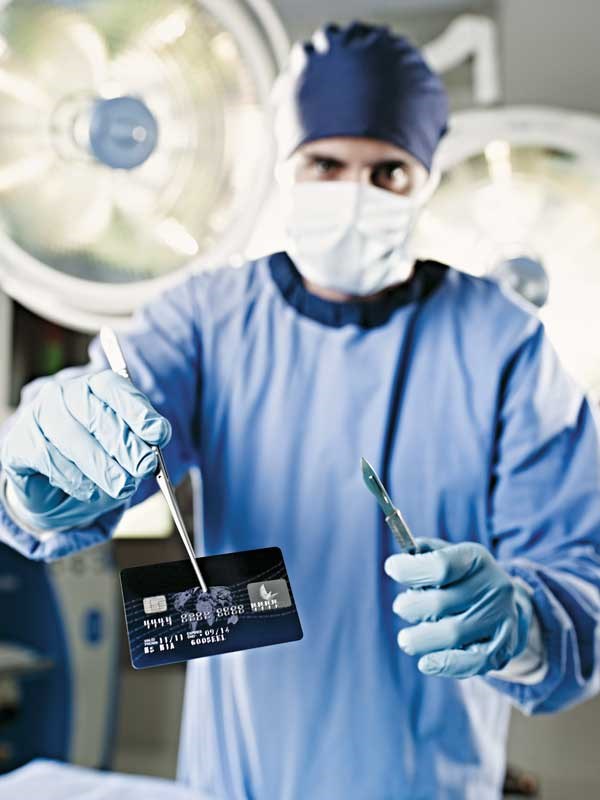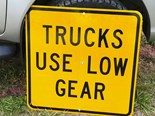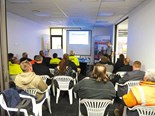Comment: Can you do without health insurance?
NZ Trucking Association's CEO David Boyce discusses why it's crucial to secure a medical insurance
As I sat at the dining room table at home trying to catch up on work-related emails, I reflected on my recent right knee replacement surgery that has put me off work for more than a month.

I am extremely grateful that our family has had medical insurance cover for many years, as this was an expensive exercise, with the insurance covering more than $28,000 of the associated costs. Fortunately for me, the medical insurance allowed me to arrange the surgery timing to suit my work and family commitments.
As a non-life-threatening condition, if I had to rely on the public health system, chances are I would have had to join a long waiting list and certainly would not have had the luxury of choosing the surgery timing.
In an industry where the average age of employees are in their mid-50s and high levels of stress, fatigue, lack of exercise, and poor diet are common, it’s no wonder that many of us suffer a range of health and age-related issues, including being overweight, high blood pressure, stroke, heart attack, stress-related disorders, diabetes, sleep disorders, and kidney failure.
If you end up with a health-related condition that puts you off work, have you got things covered to get you back to work as soon as possible? If you’re relying on the public health system to look after you, you may be in for a big shock, because unless your condition is life-threatening, you may be put on a long waiting list.
For some conditions, this may see you unable to work for many months, sometimes even years. In the public health system, the average time from your first GP visit to having surgery is in excess of 200 days.
With medical insurance, you would typically be seen by a surgeon a couple of weeks after visiting you GP, and in many cases, you will have had your surgery, recovered, and be back at work before you had even had your first appointment under the public health system.
Can your family budget cover this shortfall in income?
ACC will cover you for most injury-type accidents, but when you consider that around 80% of peoples health conditions are non-injury related, you can see the scale of your problem if you were to rely on ACC as your only form of medical insurance.
Some people think the option of covering the risk by self-insuring is the answer, but who really has the discipline or the resources to put the money aside to cover the potential costs? And these costs can be significant.
The following is a list of common health concerns that many people face during their life and the typical cost of the surgery procedures:
- Heart valve replacement surgery: $58,000 to $85,000
- Hip replacement surgery: $20,000 to $30,000
- Knee replacement surgery: $22,000 to $30,000
- Prostate cancer surgery: $16,000 to $24,000
- Coronary angioplasty: $15,000 to $37,000
- Cataract surgery (one eye): $3500 to $6000
- Sinus surgery: $6500 to $29,000
- Cardiac ablation: $24,000 to $45,000
- Breast cancer surgery: $8500 to $20,000
- Endometriosis surgery: $8500 to $35,000
- Gall bladder removal: $8000 to $16,000
- Robotic prostatectomy: $32,500 to $36,000
- Hernia repair: $5000 to $16,000
- Colonoscopy: $2000 to $4000
As you can see, the potential costs are significant. Not many families will have the spare cash sitting around to cover these costs.
Based on my experience, I would certainly recommend you consider medical insurance cover for yourself and your family. It’s peace of mind for you to know that you can get treatment when and where you need to.
If you decide to take out medical insurance, take your time to research what is best for you and your family. Shop around among the different insurance providers to see who can give you the best cover for the premium that you can afford. There are many types of cover, but these usually fall into two categories:
- Comprehensive cover: This covers most health conditions, including surgery, specialist, hospital visits, GP, prescriptions, glasses, and physiotherapy. This type of cover is more expensive, and in the case of GP visits and prescriptions, is only dollar swapping your premium to cover the costs.
- Surgery, specialists, and hospital cover: This is aimed at covering the big-ticket items that you can’t afford to cover yourself and is usually the most cost-effective insurance.
If you would like some friendly and unbiased advice, NZ Trucking Association can point you in the right direction with access to trusted medical insurance advisors. If your business employs five or more people, we have access to group medical insurance cover that offers heavily discounted premiums that are based on the group’s average age, and best of all, you may even be covered for existing medical conditions.
If you would like more information, call us on 0800 338 338 or e-mail info@nztruckingassn.co.nz.
Covering your financial risk with medical insurance is the first step. Looking after yourself in the first place will greatly reduce your health risk. Even if you’re feeling healthy, you should plan to visit your doctor at least once a year for a health check-up.
This will give your doctor the opportunity to screen you for any health issues that may be developing and to recommend a course of action. Take a proactive approach to maintain good health. One of the keys to being healthy is regular exercise. Here are some simple ideas that can help.
Buy a Fitbit or Pedometer type device that is worn on your wrist like a watch. This measures the number of steps you take each day. Just by doing a few laps around the yard or ferry terminal while you are waiting can make a huge difference to your health. Leave some old running shoes in the cab for the days you have a bit more spare time, as these will be more comfortable to walk in.
Go down to the local sports shop and buy a couple of handheld weights and a skipping rope to leave in the cab. There is a multitude of simple exercises you can do with these that will help with your strength and cardio health.
Making healthy eating choices is not as hard as you think; it just requires a bit of forward planning. The occasional pie or fish and chips is OK, but these food items should not be part of your everyday diet. Go and buy a large chilly bag, which can be loaded up with healthy food items, including fruit, vegetables such as carrots and celery, dried fruit and nuts, healthy cereal such as instant porridge, and bottles of fresh water.
When cooking meals at home, just make a bit extra that can be put into an airtight container and eaten the next day. Try and avoid foods that have high sugar and salt content and limit the number of caffeinated drinks, including coffee and energy drinks. Limit your alcohol intake to sensible limits, especially if you are driving the next day.
Getting good sleep is essential for good health. If you’re struggling to get good sleep, then visit your doctor to get an assessment of the causes. It could be sleep apnoea, which can be treated through various means, including the use of a CPAP machine, which aids breathing at night.
The main point to remember is that you have the power to improve your health. So start making some changes now and get your life on the healthy road.
Keep up to date in the industry by signing up to Deals on Wheels' free newsletter or liking us on Facebook.





.jpg)


.jpg)








